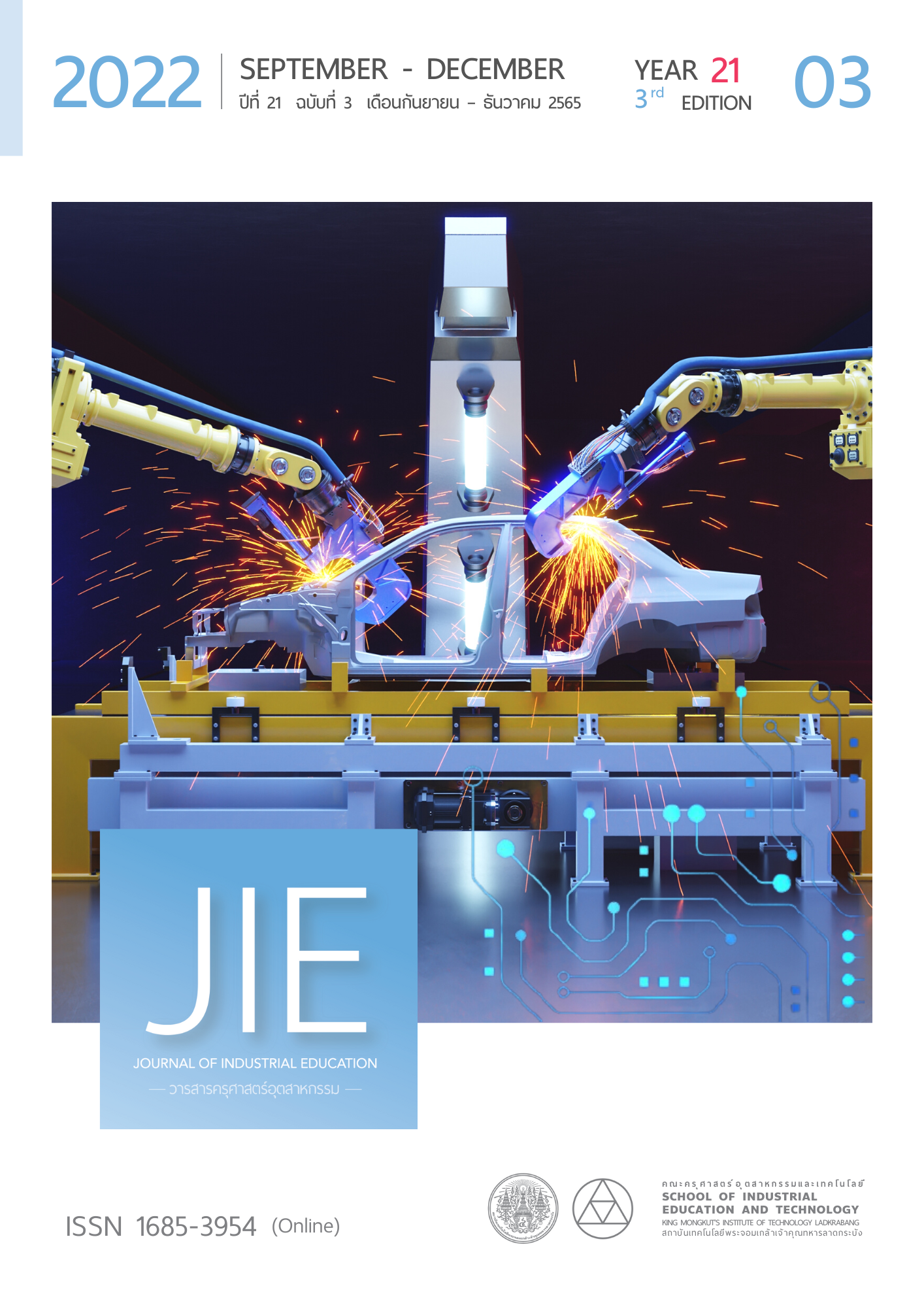THE USE OF INFORMATION TECHNOLOGY FOR MANAGEMENT OF ENTREPRENEURS IN THE AUTOMOTIVE MANUFACTURING INDUSTRY
Keywords:
Use of information technology, Automotive manufacturing entrepreneurs, Automotive industryAbstract
The automotive manufacturing industry is important for the country's economic development. The use of information technology for entrepreneurs’ management in the automotive manufacturing industry will be a guideline for upgrading the Thai industry to Thailand 4.0 to meet customer needs in production processes, linking raw materials from manufacturers and customer orders, and leading to international excellence. To successfully manage the automotive parts industry, the chief executive officers have to develop information technology for systematic data collection all inside and outside the organization including effective data processing to support operations and management decisions to achieve maximum efficiency, analyze problems for control and solving, enhance competitiveness, and create an organization of excellence from information technology for management. According to the direction of the world's modern automotive industry development, there is competition for effective technology development around the world including cost reduction in the automotive industry. The development needs to innovate information technology for entrepreneurs’ management in the automotive manufacturing industry to complete internationally and transform Thailand's automotive industry into a global automotive industry in the future.
References
Acemoglu, D., & Restrepo, P. (2019). Automation and new tasks: How technology displaces and reinstates labor. Journal of Economic Perspectives, 33(2), 3-30.
Atkinson, R. D. (2018). Which nations really lead in industrial robot adoption? Information Technology & Innovation Foundation, 1-8.
Automotive Information Center. (2020). Automotive industry 2019. Hipernet. (in Thai)
Chiacchio, F., Petropoulos, G., & Pichler, D. (2018). The impact of industrial robots on EU employment and wages: A local labour market approach (Working paper no. 2). Bruegel. https://www.bruegel.org/sites/default/files/wp_attachments/Working-Paper-AB_25042018.pdf
Collins, G. (2018). Claude E. Shannon: Founder of information theory. Computer Architecture, The University of Chicago.
Denning, P. J., & Tedre, M. (2021). Computational thinking: A disciplinary perspective. Informatics in Education, 20(3), 361-390.
Drahokoupil, J. (2020). The challenge of digital transformation in the automotive industry: Jobs, upgrading and the prospects for development. ETUI.
Kagermann, H. (2015). Change through digitization - Value creation in the age of industry 4.0. In H. Albach, H. Meffert, A. Pinkwart, & R. Reichwald, (Eds.), Management of permanent change (pp. 23-45). Springer Gabler.
Krungsri Research. (2020). Trend business/industry in 2020-2022: The auto parts industry. https://www.krungsri.com/th/research/industry/industry-outlook/Hi-tech-Industries/Auto-Parts/IO/Industry-Outlook-Auto-Parts (in Thai)
Powell, M. (2003). Information management for development organizations (2nd ed.). Oxford.
Shelly, G. B., & Rosenblatt, H. J. (2012). System analysis and design (9th ed.). Course Technology Cengage Learning.
Thailand Automotive Institute. (2020). Development plan for the automotive industry 2016-2019. SR Center. (in Thai)
Thai Society of Automotive Engineers. (2021). Real potential of Thailand automotive industry.
TSAE. (in Thai) Winkelhake, U. (2021). The digital transformation of the automotive industry: Catalysts, roadmap, practice(2nd ed.). Springer.
Downloads
Published
How to Cite
Issue
Section
License
Copyright (c) 2022 Journal of Industrial Education

This work is licensed under a Creative Commons Attribution-NonCommercial-NoDerivatives 4.0 International License.
"The opinions and contents including the words in papers are responsibility by the authors."
"ข้อคิดเห็น เนื้อหา รวมทั้งการใช้ภาษาในบทความถือเป็นความรับผิดชอบของผู้เขียน"



